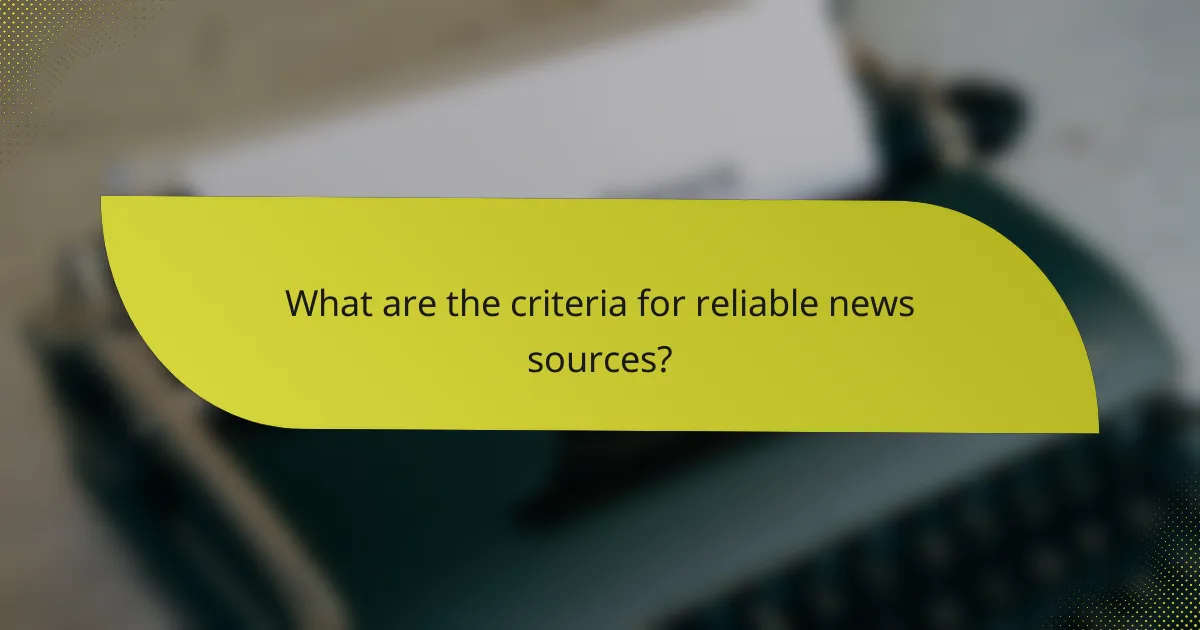Stay informed with the latest breaking world news updates through a variety of platforms that deliver real-time information. From live news streaming and mobile apps to social media discussions, these resources provide unique opportunities to engage with key global events and share your perspectives with others.

How to access breaking world news updates?
Accessing breaking world news updates can be done through various platforms and services that provide real-time information. These sources include live news streaming, aggregator websites, mobile apps, social media, and subscription services, each offering unique features and benefits.
Live news streaming platforms
Live news streaming platforms allow you to watch news broadcasts in real-time, providing immediate updates on breaking events. Popular services include CNN, BBC News, and Al Jazeera, which often offer free access online or through cable subscriptions.
Consider the quality of coverage and the geographical focus of these platforms. For instance, some may provide more in-depth reporting on specific regions or topics, which can be beneficial depending on your interests.
News aggregator websites
News aggregator websites compile articles and updates from various sources, giving you a broad overview of breaking news. Sites like Google News and Flipboard allow users to customize their feeds based on interests, ensuring you receive relevant updates.
When using these platforms, check the credibility of the sources being aggregated. Relying on reputable news outlets will enhance the reliability of the information you receive.
Mobile news apps
Mobile news apps provide convenient access to breaking news updates directly on your smartphone. Popular apps include BBC News, Reuters, and AP News, which often offer notifications for breaking stories.
Ensure that your app settings are configured to receive alerts for significant updates. This way, you won’t miss crucial news events as they unfold.
Social media channels
Social media channels like Twitter and Facebook are increasingly used for real-time news updates. Following reputable news organizations and journalists can provide immediate access to breaking news as it happens.
Be cautious of misinformation on social media. Always verify news from multiple credible sources before accepting it as accurate.
News subscription services
News subscription services offer in-depth reporting and analysis, often including breaking news updates. Services like The New York Times and The Washington Post provide subscribers with timely alerts and exclusive content.
Consider the subscription costs and whether the service aligns with your news consumption habits. Many offer trial periods, allowing you to evaluate their offerings before committing financially.

What are the key live events to follow?
Key live events to follow include international sports competitions, political summits, natural disaster coverage, and cultural festivals. These events attract global attention and offer opportunities for engagement and discussion.
International sports events
International sports events, such as the FIFA World Cup and the Olympic Games, draw millions of viewers worldwide. These competitions not only showcase athletic talent but also foster national pride and unity.
When following these events, consider the time zone differences and local broadcasting schedules. Major events often have extensive coverage across various platforms, including television, streaming services, and social media.
Political summits
Political summits, like the G7 or UN General Assembly, are crucial for international relations and policy-making. These gatherings allow world leaders to discuss pressing global issues, from climate change to trade agreements.
Stay informed about the agendas and outcomes of these summits, as they can significantly impact international policies and economic conditions. Following reputable news sources can provide real-time updates and analysis.
Natural disaster coverage
Natural disaster coverage is vital during events like hurricanes, earthquakes, or wildfires. Real-time updates help communities prepare and respond effectively to emergencies.
Monitor local news outlets and emergency services for the latest information on safety measures and evacuation orders. Social media platforms can also provide immediate updates and community support during crises.
Cultural festivals
Cultural festivals, such as Diwali, Carnival, or Oktoberfest, celebrate traditions and heritage, attracting visitors and participants from around the globe. These events often include music, food, and art, creating vibrant experiences.
Engaging with these festivals can enhance cultural understanding and appreciation. Check local event calendars for dates and activities, and consider participating in virtual events if travel is not feasible.

How to participate in news discussions?
Participating in news discussions allows individuals to engage with current events and share their perspectives. You can join conversations through various platforms, each offering unique ways to connect with others and express your views.
Online forums and communities
Online forums and communities provide a space for in-depth discussions about news topics. Websites like Reddit or specialized news forums allow users to post comments, ask questions, and engage in debates. Look for communities that align with your interests to enhance your experience.
When participating, remember to follow community guidelines and respect differing opinions. Engaging thoughtfully can lead to more productive conversations and a better understanding of various viewpoints.
Social media discussions
Social media platforms like Twitter and Facebook are popular for real-time news discussions. You can follow news outlets, journalists, and influencers to stay updated and join conversations by commenting or sharing your thoughts. Hashtags can help you find trending topics and engage with a broader audience.
Be mindful of the tone and content of your contributions, as social media can amplify both positive and negative interactions. Aim for constructive dialogue to foster meaningful exchanges.
Live Q&A sessions with journalists
Live Q&A sessions with journalists offer a direct way to ask questions and gain insights into news stories. These sessions are often hosted on platforms like Instagram Live or YouTube, allowing viewers to submit questions in real-time. Participating can provide clarity on complex issues and allow you to hear directly from those reporting the news.
To make the most of these sessions, prepare your questions in advance and be concise. Engaging respectfully with journalists can lead to informative discussions and a deeper understanding of the news cycle.
Webinars and panel discussions
Webinars and panel discussions are structured events where experts discuss current events and share their insights. These sessions often include a mix of presentations and audience interaction, allowing for a comprehensive exploration of topics. Look for events hosted by reputable organizations or news outlets to ensure quality content.
When attending, take notes and prepare questions to ask during Q&A segments. This proactive approach can enhance your learning experience and contribute to a richer discussion atmosphere.

What are the criteria for reliable news sources?
Reliable news sources typically adhere to rigorous standards of accuracy, transparency, and accountability. Key criteria include fact-checking practices, the reputation of the organization, and clarity in reporting methods.
Fact-checking organizations
Fact-checking organizations play a crucial role in verifying the accuracy of news claims. They assess statements made by public figures and media outlets, often providing a rating system to indicate the truthfulness of these claims. Examples include PolitiFact and FactCheck.org, which are widely recognized for their impartial evaluations.
When evaluating a news source, check if they reference or collaborate with reputable fact-checking organizations. This connection can enhance the credibility of the information presented.
Established news organizations
Established news organizations have a long-standing reputation for journalistic integrity and professionalism. Outlets like BBC, Reuters, and The New York Times are known for their editorial standards and rigorous reporting processes. These organizations often have dedicated teams for investigative journalism and fact-checking.
Consider the history and track record of a news organization when assessing reliability. Established outlets are generally more accountable and have resources to correct errors, unlike newer or less-known sources.
Transparency in reporting
Transparency in reporting involves clear disclosure of sources, methodologies, and potential biases. Reliable news sources often provide information on how stories are researched and the sources of their information. This openness allows readers to evaluate the credibility of the news presented.
Look for articles that cite sources directly and explain their relevance. Avoid sources that lack clarity about their information-gathering processes, as this can indicate potential bias or misinformation.

How to stay updated on global news trends?
To stay updated on global news trends, utilize a combination of news alerts, social media, and reputable news websites. These tools provide timely information and diverse perspectives on current events, allowing you to engage with the news as it unfolds.
News alerts and notifications
News alerts and notifications are essential for receiving real-time updates on significant global events. Most news apps and websites allow users to customize alerts based on topics of interest, ensuring you receive relevant information promptly.
To set up news alerts, download a reliable news app or subscribe to newsletters from trusted sources. Popular options include BBC News, Reuters, and Associated Press. You can often choose between breaking news alerts, daily summaries, or topic-specific notifications.
Be mindful of the frequency of alerts; too many can lead to notification fatigue. Consider adjusting your settings to receive alerts only for major events or specific topics that matter most to you.
